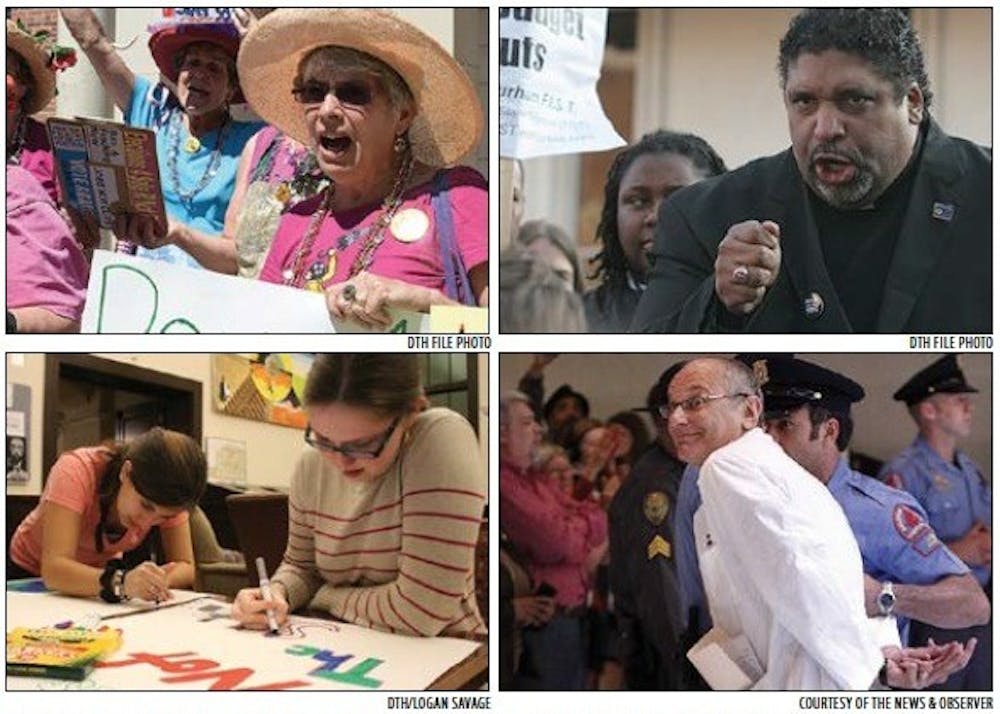When Moral Monday protests began in Raleigh this summer, Barber said he had no idea how much attention they would attract.
“What we did know is that silence was not an option.”
An eclectic mind
Barber was about 5 years old when his family moved to the racially-segregated South from Indiana. His parents were called to rural eastern North Carolina to help lead the integration of public schools.
When he was in high school, he became the school’s first black student body president.
A counselor told him he wasn’t college material.
Barber went on to attend North Carolina Central University and then Duke University’s Divinity School.
Timothy Tyson, a visiting professor at Duke Divinity, met Barber in 2006. Tyson, like Barber, is a preacher’s son.
“He’s warm and funny, and brilliant,” Tyson said. “He’s got a wonderful, eclectic, interesting mind. I admire him very much.”
Both are busy with their jobs and organizing the movement, but Tyson said they still find time to play.
“We trash talk,” he said “We have kind of a rivalry as barbecue cooks, so we have a cook-off from time to time, at which time my superiority is aptly demonstrated.”
Barber said he goes fishing with Tyson to relax, along with listening to jazz and Motown music and pranking his kids.
To get the day's news and headlines in your inbox each morning, sign up for our email newsletters.
“The best way to spend time around Barber is just to go where he goes,” Tyson said.
A ‘prophetic’ leader
Alan McSurely, a civil rights lawyer and activist, said he has worked with a lot of important civil rights leaders in the last 50 years, including Martin Luther King Jr., but he considers Barber the most well-rounded, and thoughtful leader.
He said Barber has brought together a patchwork of people in the state — from different political ideologies, socioeconomic, racial and ethnic backgrounds.
“It’s a tapestry of the human race that’s going to be (at Saturday’s march),” he said.
The Rev. Nancy Petty, pastor of Pullen Memorial Baptist Church in Raleigh, said she will emcee the rally.
Petty met Barber in 2010 after she wrote an Op-Ed for The (Raleigh) News & Observer about segregation in Wake County schools.
She said Barber called her that night asking to meet her.
They soon started working together. She said they were even arrested together while they sat in on Wake County School Board meetings.
Barber and Petty worked together against Amendment One, the state constitutional amendment defining marriage between a man and a woman.
Petty said her church is accepting of her as a gay pastor. Barber, she said, was one of the first leaders from the local black Christian community to vocally support gay rights.
“Rev. Barber really took a risk and showed tremendous courage and his prophetic voice in saying that this is a justice issue for our brothers and sisters who are in the LGBT community,” she said.
Barber said he has also worked for income and gender equality, voting rights and public education.
“The issue is not what I can do, but what we can do when we stand together, pray together, fight together and believe in justice together,” he said.
state@dailytarheel.com



